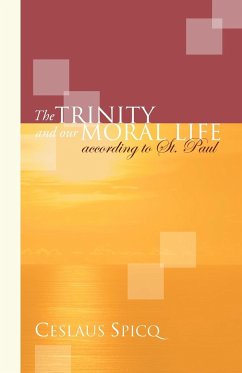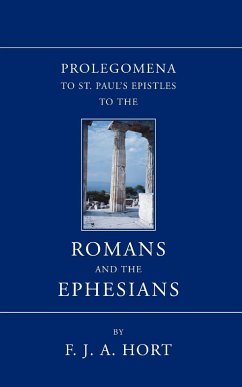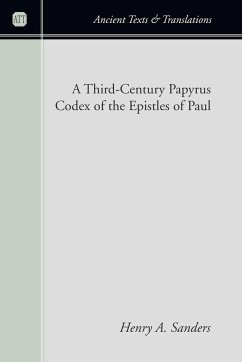
The Trinity and Our Moral Life according to St. Paul
Versandkostenfrei!
Versandfertig in 1-2 Wochen
19,99 €
inkl. MwSt.

PAYBACK Punkte
10 °P sammeln!
Roman citizenship was important to St. Paul for it brought privileges and powers granted to no other men. Yet with this in mind, after his conversion, Paul tells the community of Philippi, As for us, our commonwealth is in heaven. Christians thus, he says, are to claim the citizenship of heaven, fully aware of the privileges, powers, and responsibilities of that great destiny. From the writings of St. Paul, the author shows how the Saint wishes us to live as citizens of heaven: Christians, you are already saved from the moment of your baptism; you are already glorified with Christ here and now...
Roman citizenship was important to St. Paul for it brought privileges and powers granted to no other men. Yet with this in mind, after his conversion, Paul tells the community of Philippi, As for us, our commonwealth is in heaven. Christians thus, he says, are to claim the citizenship of heaven, fully aware of the privileges, powers, and responsibilities of that great destiny. From the writings of St. Paul, the author shows how the Saint wishes us to live as citizens of heaven: Christians, you are already saved from the moment of your baptism; you are already glorified with Christ here and now. The author first shows how the paganism of the times indicated the necessity of revelation from God and how this revelation came from the Father in the person of Christ in the New Testament. Christians as a result must express their gratitude to the Father by living anew in Christ Jesus. This Christian concept of life is not a mere institution involving a moral code and abstract doctrine, but is rather summed up in the Person of Christ. The Christian can accomplish this by the work of the Holy Spirit, who fosters a life of faith in Christ, dominated by a love and a freedom of the children of God. The fruit of this conformity to the Spirit is the beauty of the moral life. Yet for all its nobility, such a life is incomplete. Fulfillment comes only in heaven where those who have struggled to obtain the victory will merit the living and eternal crown of blessedness with the Trinity. Filled with the spirit of St. Paul, this volume will be of great value to those who seek a sound Scriptural theology. The great Pauline themes are marvelously interwoven and highlighted in presenting a unified spiritual doctrine.












